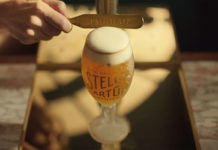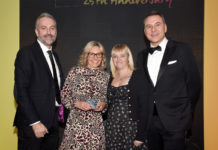Educating customers on category can boost sales, firms say
As the craft beer wave shows no sign of abating, licensees have an opportunity to boost profits through educating staff and customers about the nuances between different beers, as well as stocking a good variety of bottled beers.
That was the message from firms contacted by SLTN, who reckoned customers are demanding more premium drinking experiences, as well as more information about the beer they drink.

The emergence of craft beer has “injected new excitement” into the beer market generally, according to Alan Hay, on-trade sales director for Tennent’s.
And Andrew Turner of Heineken said this trend can help publicans to boost their profits.
“Thanks to the higher price point that many craft beers command, it’s important that licensees consider the role craft should play in their range to maximise their profits,” said Turner.
A varied range of bottled craft beers, in particular, provides licensees with a “clear opportunity to maximise profits”, according to Turner.
This was supported by Steve McCarney, director of Broughton Ales, who said bottles allow licensees to cater to broadening consumer tastes without the investment of installing additional draught beer lines.
“Offering a range of packaged beers, allows the retailer to innovate, and cater for those who want something different without expensive installation costs,” he said.
“We are increasingly approached by operators who have customers saying ‘I want a local beer, I want something different’.”
McCarney recommended licensees carry a range of five or six different bottled beers from local brewers who have a story to tell, which he said “consumers love to hear about”.
With so many craft bottled beers to choose from, Hay at Tennent’s advised licensees to offer a ‘core’ range as well as an “extended, balanced selection” of craft products to ensure that “all tastes and occasions are catered for”.
Turner at Heineken took a similar stance, emphasising the importance of customer engagement to ensure the bottled range reflects what an outlet’s customers are looking for.
“Take the time to engage with customers, ask them what brands they want and stock accordingly,” said Turner.
“By speaking to your customers and monitoring purchases, you can successfully tailor your range to suit your market and range your fridges to ensure that you have new and vibrant brands that your customers want.”
Stocking the right products for the outlet and its clientele is important.
But it’s also worthwhile to ensure staff are up to date on what’s in the back-bar fridges, according to Hay.
He said investing in product training for staff can provide “numerous benefits to a business”.
“Staff who make informed recommendations can confidently up-sell and promote products of a more premium price point,” said Hay.
Turner added that consumers are often “receptive to recommendations” and bar staff need the confidence to engage with customers and “talk knowledgeably” about the beers they stock.
Aside from well-trained and knowledgeable staff, McCarney of Broughton Ales spoke of the importance of appropriate point of sale material, which he said can help licensees to “start a conversation” with customers, ultimately leading to a growth in sales.
And Hay recommended taking advantage of any branded point of sale material available from suppliers.
“Branded glassware always provides stand out and improves the drinking experience,” he said.
“Internal and external signage, bar runners, drip mats, branded posters, etc. will all help to keep the brand at the front of your customers’ minds and encourage purchase.”
In-outlet events are another powerful tool for engaging with customers and encouraging them to try new beers, said firms.
Tutored tastings and beer with food events have worked well for Broughton Ales, claimed McCarney.
And Emily Gray of Stewart Brewing stressed the impact these can have on sales. “These events enable us to work closely with the pubs that provide us with so much support and give us the opportunity to showcase the range of beer styles that we are capable of producing,” she said.























